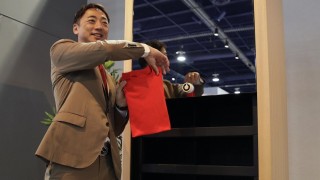Loading
Search
▼ Japan’s Land Of Dreamers, Robots And Folding Start-Ups
- Category:Other
Four years ago, a Tokyo-based start-up called Seven Dreamers stole the show at Japan’s biggest technology trade fair with Laundroid — an artificial intelligence robot that could neatly fold clothes.
Despite Laundroid taking well over five minutes to process a single T-shirt, the machine became an instant superstar and Japan’s collective imagination — always eager for the next miracle robot — was piqued. By 2017, said its makers, the $16,000 machine would be on the market. By 2018, it would be sold to nursing care facilities. By 2020, there would be a Laundroid unit ready for ordinary people’s homes.
Unfortunately, the start-up itself has proved it was better at folding. Technical problems mounted, commercialisation was elusive and not a single unit ever sold. Seven Dreamers filed for bankruptcy in April, and in late July liquidators said they could still not find a buyer.
The death of Laundroid, say analysts, is a parable of Japan’s relationship with high-tech, venture capital and, particularly in the field of robots, the gulf between promise and reality. The huge success of Laundroid’s pitch was nevertheless viewed at the time as a pivotal moment for Japanese start-ups, long seen as fighting an impossible war in a system rigged against entrepreneurs and starved of the disruptive Silicon Valley spirit.
Seven Dreamers, whose credentials were bolstered with former staff of Sony and Fujitsu, quickly attracted over $50m in backing from blue-chip Japanese corporations including Panasonic and homebuilder Daiwa House. That was soon augmented by investment from the two founders of private equity firm KKR, Henry Kravis and George Roberts.
- August 27, 2019
- Comment (0)
- Trackback(0)


